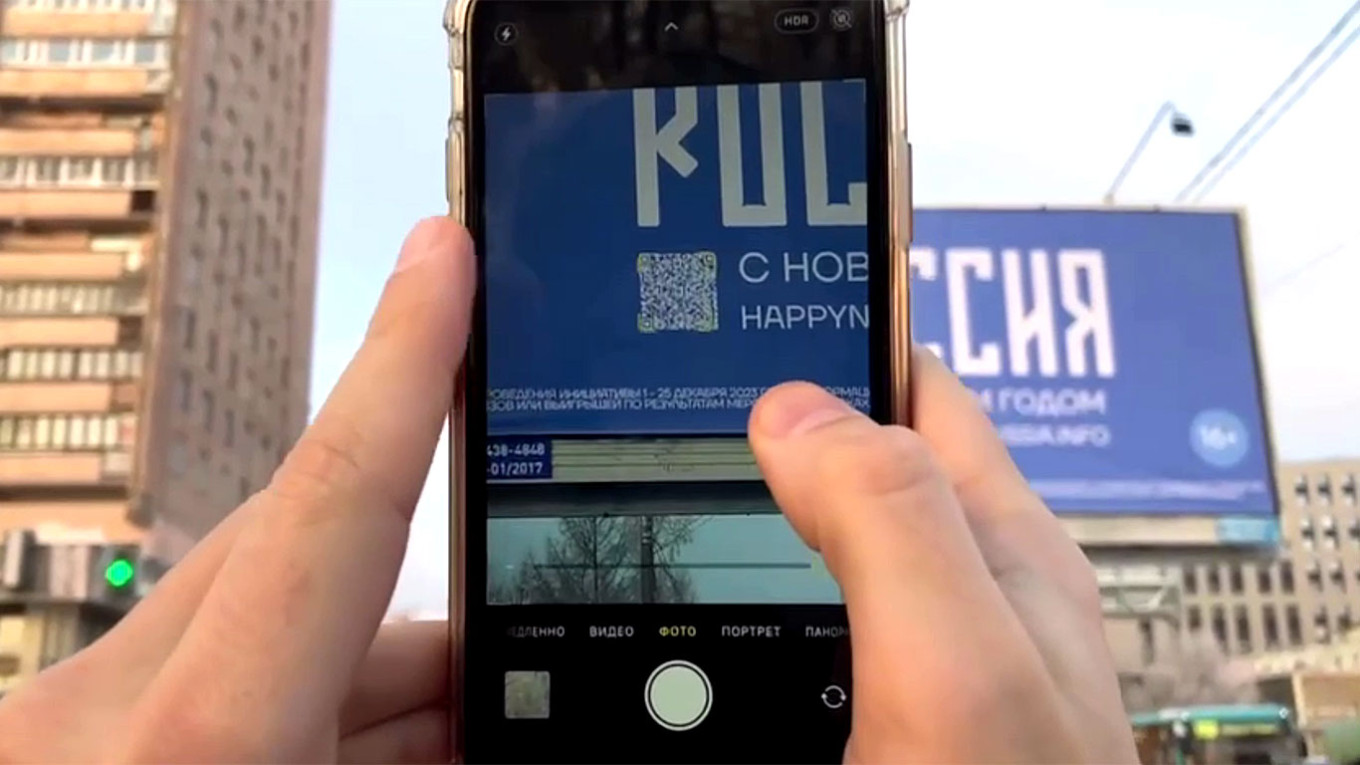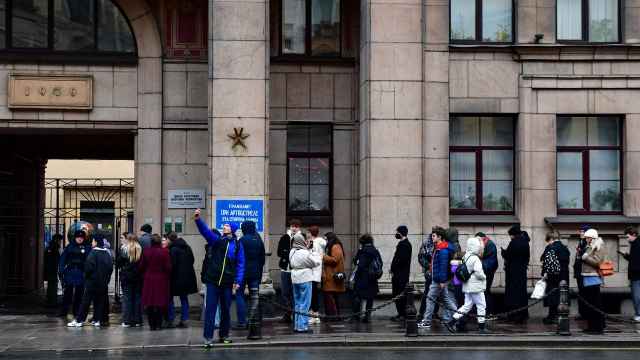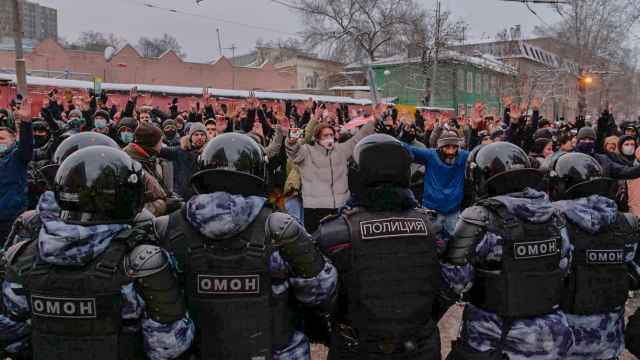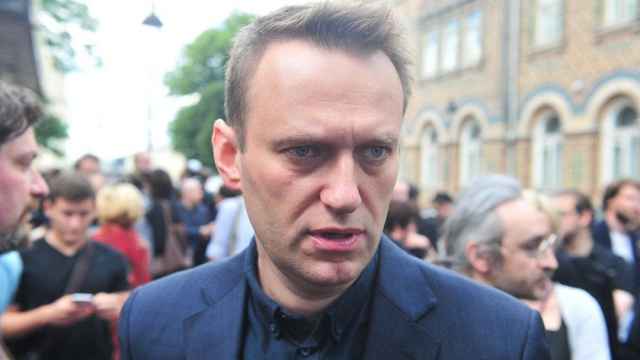Authorities in Moscow have banned billboards containing QR codes after allies of jailed Kremlin critic Alexei Navalny used the matrix barcodes to conceal their newly launched anti-Putin campaign ahead of the 2024 presidential election.
Navalny on Thursday urged supporters to vote for any candidate besides Vladimir Putin during the race, which is scheduled to take place on March 15-17.
On Friday, the 71-year-old Putin officially announced his bid to run for a fifth term.
Navalny’s team launched the website neputin.org (translated from Russian as “Not Putin”), which calls on Russians to convince others to vote against Putin.
The website was accessible via a QR code displayed on billboards across Russia that read: “Russia. Happy New Year.”
Municipal workers promptly took down the billboards, according to the independent news outlet Sota.
Moscow's city government circulated a letter among ad distributors on Thursday, Dec. 7, instructing them to “exclude QR codes from billboard designs,” according to a document shared by Sota and the business news website RBC.
“QR codes that serve as an online link contain various information and are prone to changes, which can violate the federal Law on Advertising,” writes Ivan Shubin, head of the city administration’s media department, adding: “especially considering increased hacker attacks and website breaches.”
The independent news website Meduza reported that the QR code leading to neputin.org had originally directed users to a different website promoting a nationwide art contest.
Navalny’s allies likely redirected the code to lead to the anti-Putin campaign’s website neputin.org, according to Meduza.
The jail Kremlin critic's team said Friday that Russia’s communications watchdog Roskomnadzor blocked access to neputin.org, though it can still be accessed with a VPN.
A Message from The Moscow Times:
Dear readers,
We are facing unprecedented challenges. Russia's Prosecutor General's Office has designated The Moscow Times as an "undesirable" organization, criminalizing our work and putting our staff at risk of prosecution. This follows our earlier unjust labeling as a "foreign agent."
These actions are direct attempts to silence independent journalism in Russia. The authorities claim our work "discredits the decisions of the Russian leadership." We see things differently: we strive to provide accurate, unbiased reporting on Russia.
We, the journalists of The Moscow Times, refuse to be silenced. But to continue our work, we need your help.
Your support, no matter how small, makes a world of difference. If you can, please support us monthly starting from just $2. It's quick to set up, and every contribution makes a significant impact.
By supporting The Moscow Times, you're defending open, independent journalism in the face of repression. Thank you for standing with us.
Remind me later.






